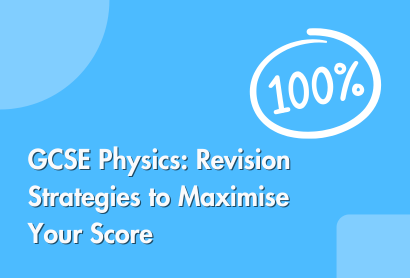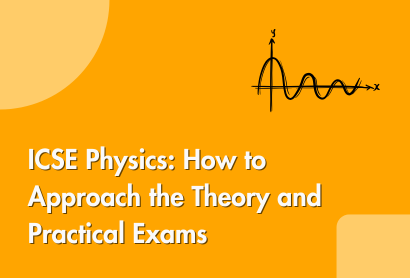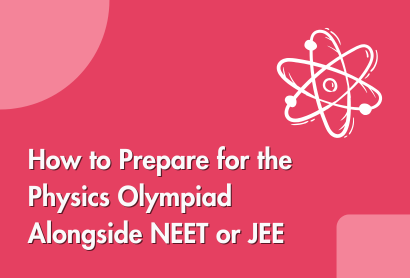JEE Physics: Key Concepts You Can’t Afford to Miss

The Joint Entrance Examination (JEE) is considered one of the hardest entrance exams in India, especially when it comes to Physics. The Questions of JEE Physics are set up in such a way that it not only assesses your knowledge but also tests the skills you use for problem solving. Since NEET UG syllabus is quite vast, including chapters of both Class 11 and 12 subjects, it becomes imperative to concentrate on certain high yield topics because they find a way in the exam from time immemorial. In this article, you will come across some of the basic concepts which are crucial for JEE Physics and must be learnt before appearing in the examination. 1. Mechanics: The Foundation of Physics Mechanics forms the backbone of Physics and is a significant part of the JEE syllabus. Mastering mechanics is essential because it builds the foundation for understanding more complex topics. Why It’s Important: Mechanics is a high-yield area with a large number of questions in JEE. Mastery here not only strengthens your problem-solving skills but also helps in understanding other Physics concepts like electrostatics and thermodynamics. 2. Electrostatics and Current Electricity Another important part of JEE, electrostat’s theoretical and numerical questions are often asked in the exam. Why It’s Important: Electrostatics and current electricity are fundamental and form the basis for several other topics in Physics. Many JEE questions involve circuit analysis and charge distribution, so practice is essential.This is Important Because: Electrostatics and current electricity are the basics of Physics so it is very important to have a strong amplification in this particular chapter as other chapters depend on these fundamental laws. In JEE, many questions are based on circuit and charge distribution thus practice is must have. 3. Magnetism and Electromagnetic Induction This section combines the physics of magnetic fields with the study of induced currents, which often feature challenging questions in JEE.This chapter of class 12 physics deals with the Physics of magnetic fields and study on induced currents, and it has some typically high standard questions in JEE. Why It’s Important: Magnetism and electromagnetic induction are important because they have enormous practical applications. Connecting two different domains of Physics, these topics tests your conceptual linking ability and hence are very important for JEE. 4. Thermodynamics and Kinetic Theory of Gases Thermodynamics is a high-scoring area in JEE Physics due to its theoretical nature and straightforward questions. Why It’s Important: Thermodynamics links with Chemistry topics as well, making it beneficial for students. This area often yields direct, formula-based questions that can be solved quickly with proper preparation. 5. Optics Optics is a mix of conceptual knowledge and application which makes sense in terms that any topic you study should have some real life relevance to keep things interesting else off-curriculum topics are always boring. Why It’s Important: Due to the nature of optics, many questions in this category require a good understanding and focus on diagrams and visual problem-solving, requiring clarity on concepts like image formation and wave behaviour. It is high-yield and serves as a base for other Physics topics. 6. Modern Physics Modern Physics has been one of the most scoring sections in JEE. It’s formula-driven, and questions are generally straightforward. Why It’s Important: Modern Physics questions are often based on direct applications of formulas, making it a high-scoring section with relatively easy questions. 7. Waves and Oscillations While often overshadowed by other topics, waves and oscillations appear frequently in JEE and can yield some easy points if prepared well. Why It’s Important: Questions of waves and oscillations are direct if you understand the fundamental concept. This area is repetitive in the exam, hence mastering these concepts will easily fetch you extra marks. Preparation Tips for JEE Physics Conclusion JEE Physics not only requires an understanding of basic principles but also to employ these mechanisms into complex problem-solving arenas. By conquering the above key points, you can have better preparation and score high in this toughest examination. Remember, consistency, clarity, and problem-solving practice are your best tools in tackling JEE Physics. Good luck, and keep pushing toward success!
GCSE Physics: Revision Strategies to Maximise Your Score

To score good marks in GCSE Physics, it takes more than just learning simple equations and facts. In order to score the most, you must be more conceptually thorough so that you can easily apply them to different varieties of questions. The guide offers you actionable strategies for your GCSE Physics revision, focusing on effective techniques to help you tackle both theory and practical questions confidently. Start with the Syllabus and Specification The GCSE Physics syllabus outlines everything you need to know, making it your best resource to ensure you’re on track. Here’s how to make the most of it: Break Down Complex Concepts into Simple Steps Physics can be challenging because it deals with abstract ideas that aren’t always intuitive. Here’s how to tackle these: Focus on Active Recall Techniques Active recall is one of the most effective ways to learn and retain information. Instead of passively re-reading your notes, try these strategies: Use Past Papers Strategically Past papers are crucial for GCSE Physics preparation. Here’s how to use them effectively: Strengthen Practical Skills and Experiments In GCSE Physics, the understanding of practical experiments is essential, even if you aren’t performing them in the exam itself. Practical questions test your understanding of experimental setups, measurements, and data interpretation. Here’s how to prepare: Keep a Formula Sheet Handy GCSE Physics requires you to remember several formulas, but creating a formula sheet can help: Develop Time Management Skills Time management is critical for GCSE Physics, as you need to answer multiple types of questions, from calculations to extended response questions. Keep a Positive, Balanced Approach Finally, balance is key. Avoid cramming right before the exam and prioritise regular, consistent study sessions over last-minute efforts. Make time to rest, as physical and mental wellness directly impact your performance. Conclusion Mastering GCSE Physics requires you to understand the concepts and also practise problem-solving with time management in hand. Practising active recall, solving previous year papers and understanding real life applications will surely increase your confidence as well scores. Preparation is not only about quantity; a good revision which is focused on understanding and application, will set you up for success in your GCSE Physics exam.
ICSE Physics: How to Approach the Theory and Practical Exams

Almost everybody has the perspective that ICSE Physics Exams are scary, and it is true to some extent, but with a proper strategy for both parts of the exam–theory and practical–they can be more fun and manageable. This blog guides you on how to excel in ICSE Physics by understanding the structure of the exams, mastering core concepts, and developing effective study habits for both theory and practical sections. Understanding the Structure of ICSE Physics Exams The ICSE Physics exam consists of two parts: To perform well in both areas, it’s essential to have a clear understanding of the syllabus and to prioritise concepts that are likely to be emphasised in the exams. Approaching the Theory Exam 1. Master Core Concepts First 2. Focus on Important Topics 3. Practice Numerical Problems Regularly 4. Draw Clear Diagrams 5. Revise and Use Mnemonics 6. Practice Time Management Preparing for the Practical Exam The practical section is designed to assess your understanding of how physics principles apply in real-world scenarios. Here’s how to excel in it: 1. Understand Experiment Basics 2. Accuracy in Measurements 3. Record Observations Neatly 4. Analyse and Conclude 5. Memorise Important Lab Safety Rules Exam-Day Tips for Theory and Practical Exams Additional Resources Final Thoughts ICSE Physics demands a blend of concept building, problem-solving and learning to practically apply theories. Start preparing with enough time at hand, divide your preparation in theory and practical work equally giving importance to scoring topics as weighted high. You can prepare well for your ICSE Physics exams, only if you practise regularly and manage time with a calm mind. Approach your ICSE Physics exams with confidence and achieve impressive results.
How to Prepare for the Physics Olympiad Alongside NEET or JEE

One of the most difficult but equally rewarding aspects is to prepare for the physics olympiad while simultaneously studying for NEET or JEE. A thorough understanding of physics is required for NEET and JEE preparation and an even deeper grasp of the subject with a focus on problem-solving, critical thinking, and application of advanced concepts is needed for the physics olympiad. This blog offers strategies to help you effectively balance Olympiad preparation with your NEET or JEE studies, so you can excel in both. Understanding the Requirements of Each Exam Building a Study Plan that Balances NEET/JEE and Physics Olympiad Preparation To maximise your preparation for both, start by designing a study plan that incorporates both exams’ requirements: Strategies for Physics Olympiad Preparation 1. Deepen Conceptual Understanding 2. Focus on Analytical Problem-Solving 3. Practice Under Exam Conditions Integrating Olympiad Preparation with NEET/JEE Studies 1. Link Olympiad Problems with NEET/JEE Topics 2. Plan Your Revision for Each Exam Separately 3. Join a Physics Study Group Recommended Resources for NEET/JEE and Olympiad Preparation Final Tips for Success Conclusion To crack the Physics Olympiad during NEET or JEE studies demands concentration, discipline and a proper strategy from your end. You can easily get good marks in both the exams if you follow a balanced study plan, have sound knowledge of overlapping concepts and solve Olympiad level problems on a regular basis. The olympiad will not only widen your knowledge of physics but also make you a more confident and resourceful problem solver—qualities that will serve you well in any competitive exam.
The Best Way to Memorise Physics Formulas for GCSE Exams

Physics is a thrilling and interesting subject; however, it cannot be denied that it can be challenging especially in terms of remembering the numerous physics formulas to be used in the GCSE exams. Certainly, these formulas need to be mastered because they are used in doing calculations, that will require an understanding of the theories as well as obtaining those valuable marks. This blog will guide you through effective methods to memorise physics formulas efficiently and strategies to help you apply them correctly in your exams. Why Understanding Comes Before Memorization Before diving into memorization, it’s essential to understand the concepts behind each formula. When you understand why a formula works, it becomes much easier to remember it. For example, understanding that F = ma (Force = mass × acceleration) reflects Newton’s Second Law of Motion makes it easier to remember and apply. Here’s how to build a foundation for understanding: Techniques to Memorise Physics Formulas Once you have a foundational understanding, it’s time to memorise. Here are some proven methods that make memorization effective and lasting: 1. Use Flashcards for Active Recall If you are trying to memorise formulas, flashcards could help speed up the process because they leverage active recall—the process of testing yourself to reinforce memory. 2. Develop Mnemonics and Associations Mnemonics and associations are memory aids that help you recall information by linking it to something familiar. 3. Create a Formula Sheet and Concept Map Creating a formula sheet or concept map is one of the best practices to keep all your formulas together based on topic. 4. Practice Writing and Repeating Writing formulas repeatedly may seem old-fashioned, but it’s a highly effective way to reinforce memory, particularly for complex formulas. How to Apply Physics Formulas During Exams Knowing the formulas isn’t enough; you also need to apply them correctly. Here are ways to reinforce application skills: 1. Work Through Practice Problems Practice problems are the single best way to test your grasp of a concept and ensure you can apply it. 2. Use Units as Clues Units can guide you when applying formulas in an exam setting, helping ensure you’re using the right one. 3. Identify Keywords in Questions Certain keywords indicate specific formulas. By practising identifying these keywords, you can quickly determine the formula to use. Common Mistakes to Avoid In the heat of an exam, mistakes can happen. Here’s how to prevent them: Final Tips for Memorization Success Conclusion Memorising GCSE Physics formulas can be challenging, but with these techniques—active recall, mnemonics, practice problems, and careful exam strategies—you’ll be well-prepared. By combining understanding with memorization, regular practice, and smart application, you’ll not only retain the formulas but also know when and how to use them effectively.

